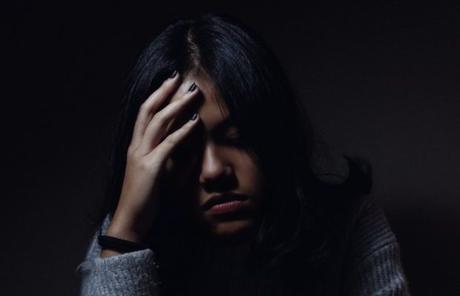
Managing grief can seem like an impossible task. It is one of the most intense and difficult emotions a person can feel, and it can significantly interfere with and hinder life.
What complicates matters is that people don't experience grief in the same way. Therefore, management strategies that work for one person may not help another. This is due in part to the fact that there are multiple forms of grief, and they all require slightly varying treatment options. But what are these different types of grief? Read on to learn more about grief in general and the common forms it takes.
What Is Grief?
Grief is an overwhelming feeling of sadness or despair that results from some sort of loss. The feelings are so intense that they make it hard for the person to go about their daily routine. They may struggle to carry on with their responsibilities and isolate themselves from the world. Grief can come in a spectrum of intensities and last weeks, months, or even years.
Though grief is primarily attributed to the loss of a loved one, it can actually be felt during any form of loss. Some of the reasons that someone may feel grief include:
- Death of a loved one
- Job loss
- Chronic health problems
- Breakup or divorce
- Loss of a home or community
- Other major life transitions
For more general information about grief, you can find more resources here. Now, let's move on to discuss the most common types of grief.
Common Types Of Grief
Grief does not come in a one size fits all model. There are many forms of grief that differ in intensity, symptoms, and longevity. Some people may feel grief before the loss, while others don't experience the classic symptoms of grief at all. It's important to be familiar with the various forms of grief so that you know how to identify and heal the type you are experiencing. Here are some of the most common types of grief.
Normal Grief
It's odd to call grief "normal" as the very emotion doesn't feel standard or normal in any way. However, this form of grief got this name because it resembles the "classic" form of grief that we tend to witness or experience during a loss. The symptoms and behaviors that accompany this form of grief are more predictable, and the overall journey leads to peace and acceptance.
Anticipatory Grief
This grief is experienced before the loss has occurred. A person begins to grieve because they know they are about to lose something or someone. This is most commonly experienced when someone is about to lose a loved one to a terminal illness. They know that their loved one will depart soon, so they have time to grieve and come to terms with the loss before the person is gone.
Complicated Grief
Complicated grief is a form of grief that is particularly debilitating and long-lasting. The painful emotions do not ease with time and remain quite severe. They may completely interfere with all aspects of daily life, making it hard to continue working, partake in responsibilities, or find any meaning and joy. Normal grief typically turns into complicated grief if the feelings do not ease or subside after a year.
Collective Grief
Unlike the other forms mentioned in this article, this form of grief applies to many people at the same time instead of just one person. This is a term that often comes up after a country, or the world experiences a terrible loss. This could come in the form of war, a natural disaster, a terrorist attack, genocide, or any other public loss. Collective grief is particularly powerful as it has the power to shape the decision-making and well-being of powerful public officials and large masses of the population.
Delayed Grief
Delayed grief is grief that does not occur long until after the loss. Someone who experiences this grief often pushes down their emotions (whether consciously or subconsciously) for a period of time until they cannot do it any longer.
One reason why this may occur is if they need to focus on their responsibilities soon after the loss. For example, someone may experience delayed grief because they had to put their energy and focus into arranging the funeral. Therefore, they may experience their grief weeks after losing their loved one instead of during the mourning period like everyone else.
Final Thoughts On Grief
Grief is different for every person. Though there are some typical signs and stages that someone may go through, the truth is that life is more complicated than that, and everyone will experience grief in unique ways. Hopefully, this article served as a good guide to grief and helped you understand that there is no one "right way to experience this emotion. If you are experiencing grief right now, please consider talking to a counselor to help you process those feelings and heal from the loss.
Presented by BetterHelp.
******
Ms Career Girl strives to provide valuable insights you can use. To see more from our columnists and guest authors, check these out!

Beach lover. SoCal dweller. Life is never over unless you surrender. Keep going, the prize IS out there.

